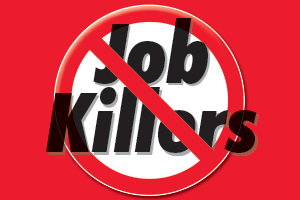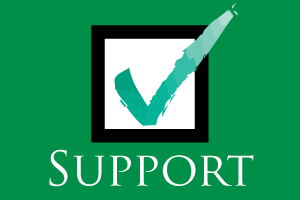 A California Chamber of Commerce job killer bill that shifts the COVID-19 pandemic’s economic fallout for tenants onto rental property owners will be considered this morning in the Senate Judiciary Committee.
A California Chamber of Commerce job killer bill that shifts the COVID-19 pandemic’s economic fallout for tenants onto rental property owners will be considered this morning in the Senate Judiciary Committee.
AB 1436 (Chiu; D-San Francisco) forces rental property owners to forgo collecting rent for the entire duration of the state of emergency or until April 1, 2021 (whichever comes first) and prohibits owners from trying to collect unpaid rents for an additional 12 months after that, with no financial assistance from the state for rental property owners who are unable to meet their financial obligations.
The bill as currently amended will result in widespread foreclosures, tighten credit assessments and lending for borrowers, depress housing investment and construction and lead to job losses across California.
Widespread Foreclosures
AB 1436 will result in foreclosures by forcing all rental property owners to forgo rent for an unreasonable amount of time with no financial help.
Rental property owners have operating costs, employees, mortgage payments, property taxes and the legal obligations to maintain the habitability of their property. They rely on rent to meet these and other financial obligations. Other rental property owners rely upon rent as their primary or sole retirement income. Notably, AB 1436 fails to address any of the costs for which rental property owners are responsible nor does it consider the unintended consequences of allowing tenants to simply withhold rent for an extended period.
Instead, the bill would force rental property owners of all sizes to forgo collecting unpaid rent for the entire duration of the COVID-19 state of emergency, plus 90 days, or at least until April 1, 2021, plus an additional 12 months in which the rental property owner is barred from collecting any unpaid rent.
AB 1436 would therefore require rental property owners to provide free housing for an unreasonably long time, preclude them from being able to collect any unpaid rent for another 12 months, and then expect rental property owners to collect months of back rent from tenants almost two years later. In short, rental property owners will be required to meet all of their mortgage, payroll, maintenance and property tax obligations, and absorb no rent from their tenants.
The bill fails to acknowledge that the overwhelming majority of California rental property owners are already working with their tenants through the pandemic. No one wants to see mass evictions. But by denying rental property owners the ability to collect rent, unless the state provides economic help, AB 1436 will shift the economic pain from tenants onto the rental property owners, leading to foreclosures and other unintended consequences. Foreclosures alone will place additional strains on banks, lenders, and the larger housing market, exacerbating the state’s housing crisis and dampening any economic recovery.
Disincentivizes Lending, Construction
AB 1436 also hurts housing and job recovery by disincentivizing lending, investment and residential construction.
Rational lenders will not risk lending capital if investments are statutorily guaranteed to yield no returns. Without capital investments, housing construction will slow in California and tens of thousands of construction jobs could be negatively impacted. A tightening of the credit market will also disproportionately impact first-time home buyers who are already more likely to be on the edge of lenders’ qualifying guidelines.
At a time when California is reeling from an existing housing crisis and an economy struggling to rebound from months of being shut down, with potentially more shutdowns on the horizon, the state must avoid driving away critical investment in California housing and the well-paying construction jobs that come with it.
Preempted by Federal Law
AB 1436’s requirement that financial institutions carry homeowner loans for a year or more without payment and without assessing fines or penalties is likely preempted by federal law. Therefore, the bill will lead to unnecessary litigation without providing relief to the groups the bill aims to benefit.
The U.S. Supreme Court and appellate courts have consistently held that federal law under the National Bank Act preempts state laws which interfere with the business of banking. It is therefore very likely that courts would stop any attempts by California to force banks to limit rates or fees, demand forbearance or loan modifications, or require banks to make certain loans.
State Must Be the Safety Net
The COVID-19 pandemic and the actions taken to address the public health crisis have wreaked havoc to California’s economy. Shutting down non-essential businesses and forcing residents to shelter-in-place have bankrupted Californians and businesses across the state. People are struggling. But the California Legislature cannot rely upon rental property owners to serve as both the state’s tax base and economic safety net for COVID-19.
AB 1436 effectively attempts to do just that by forcing rental property owners to forgo months if not years of no rent while still being required to meet all of their financial obligations, without any financial assistance from the state. It is an inequitable and unsustainable policy that will have widespread economic impacts across California’s economy.
Only the state has the power and resources to function as a safety net to guarantee the health and welfare of its citizens.
Staff Contact: Adam Regele


